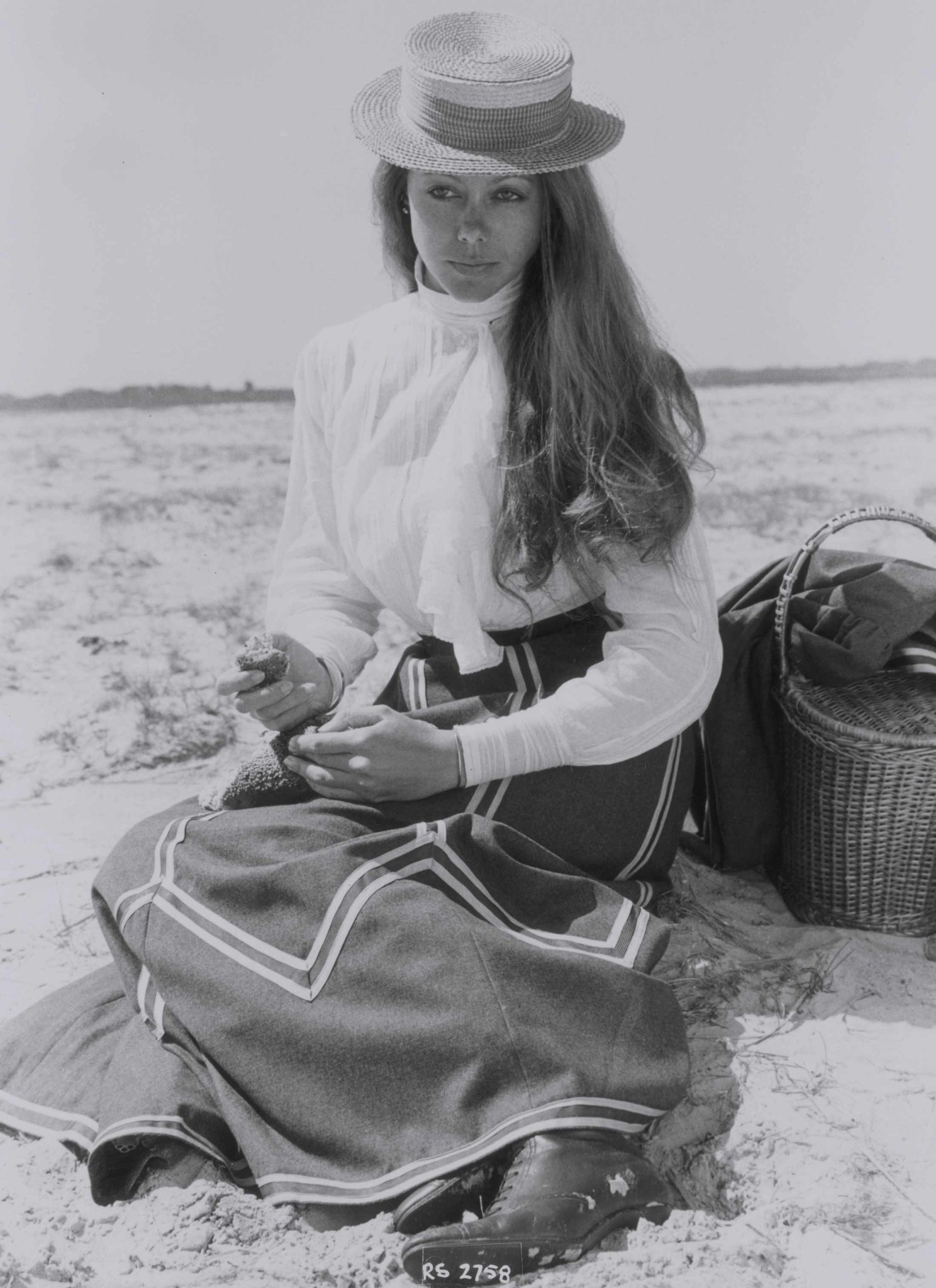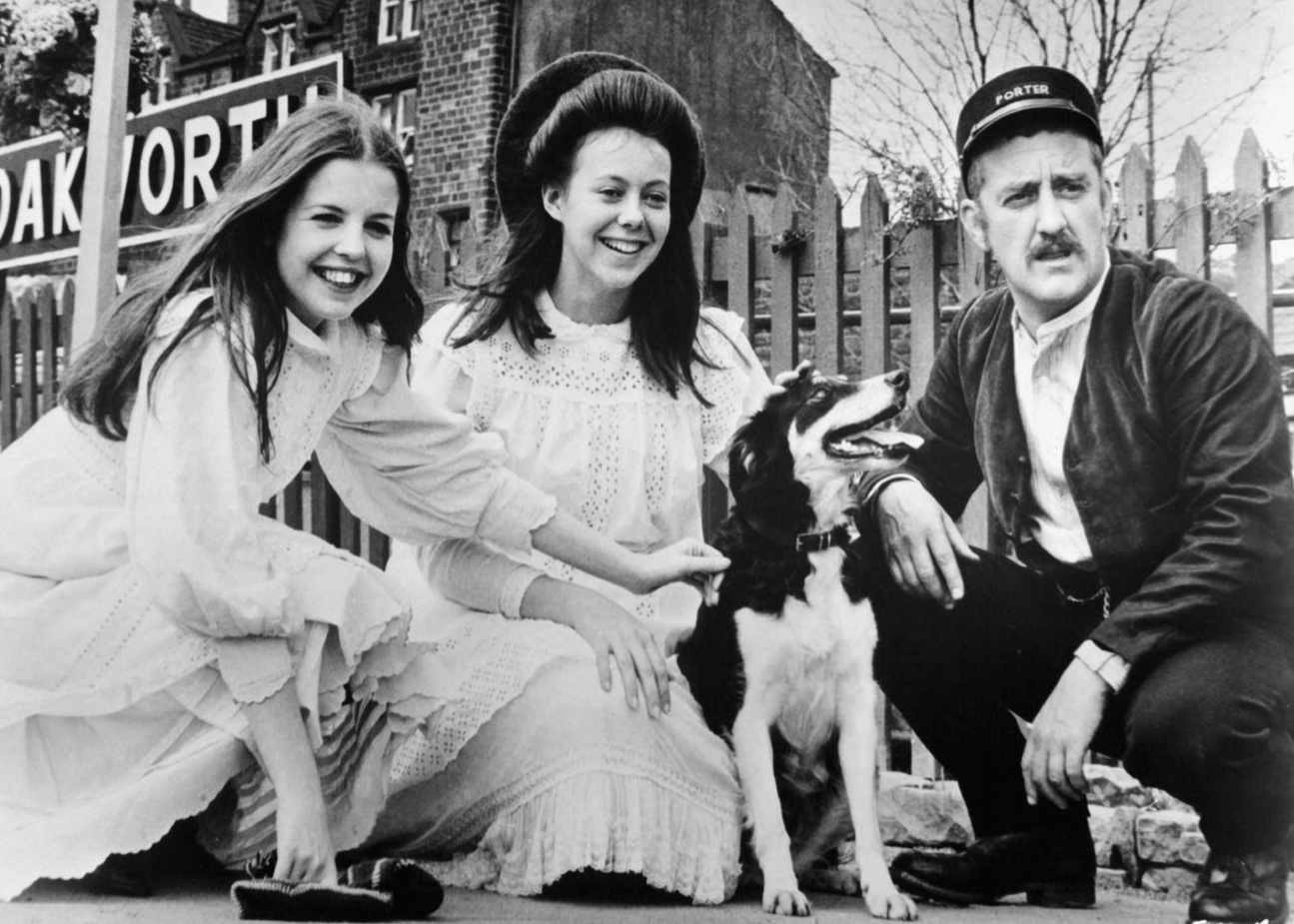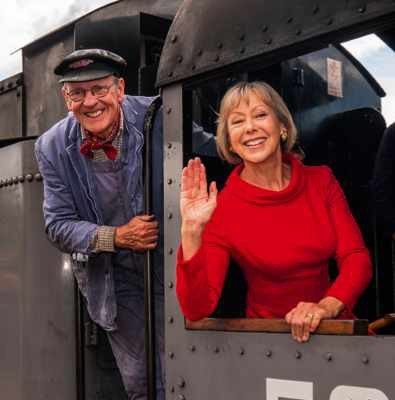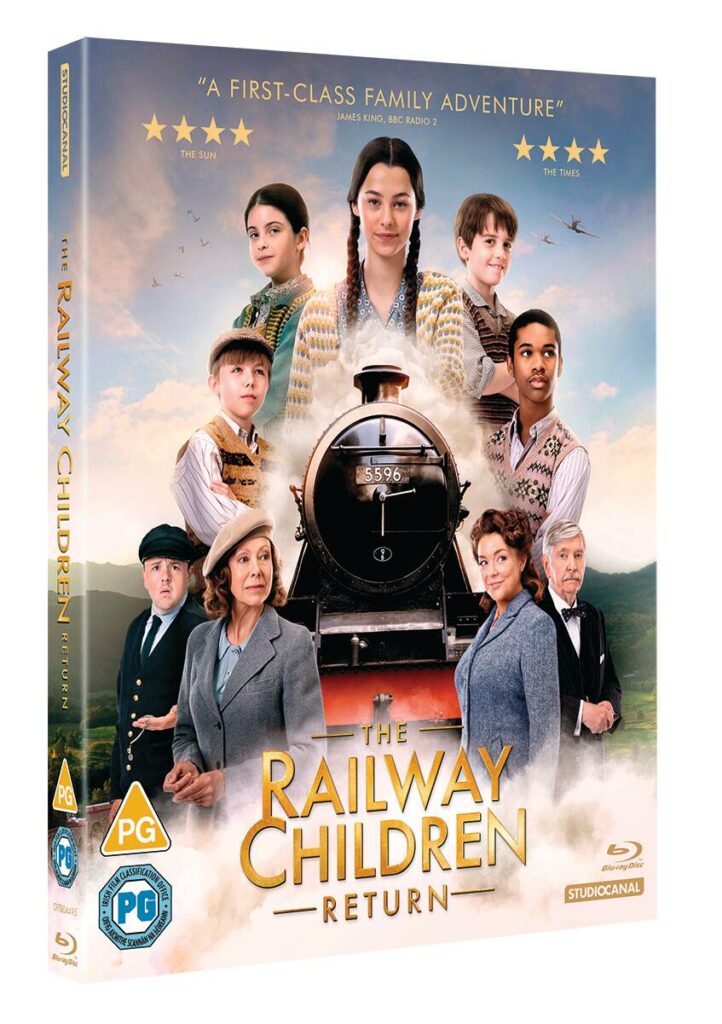Wild at heart
Actress Jenny Agutter discusses the landscapes of her work, the life of E Nesbitt and elemental thrills
Don’t miss
Listen to our full interview with Jenny Agutter at countryfile.com/podcast/jenny-agutter
From English rose to midwife matriarch, Jenny Agutter has graced our screens since her early teens, appearing in more than 40 films and 50 TV dramas over five decades. Some of her most well-known works have shaped our collective consciousness about our countryside, whether the idyllic Edwardian pastoral setting of The Railway Children (1970), the lonely Essex marshes in The Snow Goose (1971) or the dark terror of the moors in An American Werewolf in London (1981).
Much of the work Agutter appears in seems to celebrate the outdoors – is that a deliberate choice on her part? “It just happened that way,” she answers frankly. “An extraordinary privilege of my life is enjoying the places that I’ve been to. The Riddle of the Sands (1979) was on the sea, Walkabout (1971) – travelling across Australia was extraordinary. But that’s just a matter of luck, it wasn’t by choice, just luck.”

“I was always out in the country, going to the sea… those memories sustain one”
Born in Taunton, Somerset in 1952 to a military family, Agutter travelled widely in childhood, spending a great deal of time outdoors. “I feel so spoilt because I was brought up abroad, I was always out in the country, I was going to the sea, I have lots of memories of that. And those memories sustain one.”
At 17, already an established actress, Agutter took the role of Roberta Waterbury in Lionel Jefferies adaptation of E Nesbitt’s The Railway
Children. Co-starring Bernard Cribbins and Diana Sheridan, the film became a classic. “It has a really wonderful life. I still get people approaching me about it. About the film – not about being an actor, or my role in it – but about the film and what that meant.”
Set in 1905 in Yorkshire, on the Keighley and Worth Valley Railway, the story follows the adventures of three siblings who have been forced to relocate from London with their mother after their father is arrested on suspicion of espionage. The children delight in watching the local railway. What is it about the tale that so captured hearts and minds?
“It’s seen through the children’s point of view. That’s what Nesbitt did with her story and Lionel managed to create an innocent view of the world,” says Agutter. “When the children meet them, Perks and all the characters seem a little bit eccentric and peculiar. It’s the way children would see them – nothing is quite ordinary. It’s delightful, they had fun with it.”
The location adds its own charm, as steam trains belt through the Yorkshire landscape around Haworth. “It’s beautiful and idyllic and the simplicity is absolutely lovely. It’s like watching a theatrical piece,” Agutter reflects.
NESBITT’S TRAGEDY
Having appeared in several iterations of the story over her career – and recently revisiting the role of Bobby Waterbury in The Railway Children Return – Agutter developed an interest in the book’s author, Edith Nesbitt, who also had a peripatetic childhood after the death of her father, who had been an agricultural chemist.
“She’s a very interesting woman,” Agutter says. “She loved writing about children… She puts forward the idea that you should always carry that childish imagination with you, because it’s only that imagination that gets us through times and on to new things.”
Nesbitt relied on her imagination to weather her own personal traumas. Socially minded and generous to those in need, she named her son after the Fabian Society. Tragically, Fabian died aged 16 on the kitchen table after an operation to remove his tonsils. “She lost him and that was a terrible trauma for her,” says Agutter. “She probably never forgave herself for it.”
Instead, she says, Nesbitt threw herself into writing, creating the happier outcomes that she longed for. “People always talk about ‘Daddy, my Daddy’ – the moment where Father comes home,” says Agutter, “but I’m on the verge of tears even when I think of it, because for
Nesbitt, her father died when she was four years old and could never come home. So I think there was always that wish that somehow father would come home. And in her writing she was able to create that.”

“You get hit by the elements in Cornwall but you enjoy them”
PLAYFUL NATURE
Nesbitt’s writing also captures the freedom children find in the outdoors, an experience that Agutter believes should be available to all. Her sense that nature is a crucial playground for youngsters led her to becoming a patron of the charity Go Beyond, which offers children who have experienced hardship the opportunity to escape into nature.
“It’s a simple idea but it makes a difference to a lot of city children who have had difficult lives. They may be children who have been carers to parents, who have never been away,” she says. “Go Beyond offers the opportunity for children to get away, to be looked after, to play with other children, to discover the countryside and to go away having enjoyed themselves and with some good memories to put down there.”
Agutter felt dismayed during the Covid lockdowns, aware that many people were cooped up without access to the outdoors. “The Covid years have been frightful. I was in the country, so I could get outside, but I really felt for people in the city, who were entirely trapped.”
It was that deprivation that led people to recognise how important nature is to our lives,

WILD DRAMA
Of course, nature isn’t always as beautiful and gentle as we might wish it to be. When I remark that many of Jenny’s films express the wonder of the great outdoors, she laughingly interjects “Not American Werewolf in London!”
It’s a good point. This classic horror opens with two American hitchhikers crossing the Yorkshire Moors (in fact filmed on the road from Capel-y-Ffin to Hay-on-Wye in the Black Mountains). The setting is darkly disturbing and the local pub full of unnerving characters. Not to mention the vicious beast roaming the moors. It makes for a comic-yet-unsettling depiction of our deep-seated fears of the wild at night, and the wild in us all.
There is, of course, something inherently dramatic about the wild, which clearly appeals to Agutter. Her favourite countryside species, she says, is “the beast of Bodmin!” and says she is drawn to the landscapes of New Zealand and Iceland, because “both have this feeling about them that things could erupt and change”. Her favourite place in Britain is Cornwall, where she has a home, because it is so wild.
“The thing that touches me is the landscape, the rocks and the sea and the roughness of it. It’s both benign and very difficult. When it’s cold, it’s really cold and you fight against the wind… You get hit by the elements there but you enjoy them, you have a lot of respect for them. And I love the walks, it’s just wonderful to go along the coastal paths, really beautiful.”
On the other hand, when asked for her rural hero, she chooses a rather decorous figure, albeit for high-energy reasons. “I love Jane Austen. I’m always amazed by how much her characters could pack into a day when walking between places in the country. Breakfast here, someone was coming for lunch, tea at so-andso’s house, all of this – and they were walking!” Given her extraordinary output, Agutter is no slouch herself, for which we can be grateful. Look out for her this year in the new series of Call the Midwife, in which she has played Sister Julianne for more than a decade, as season 12 hits our screens.
CAREER HIGHLIGHTS
1970 The Railway Children
1971 Walkabout
1971 The Snow Goose
1976 Logan’s Run
1976 The Eagle Has Landed
1977 Equus
1979 The Riddle of the Sands
1981 Amy
1981 An American Werewolf in London
2012–22 Call the Midwife
2022 The Railway Children Return she says. “We realised what a resource it is. People flooded into the parks and to the seaside and out into the country as soon as they could, and hopefully we will always be able to enjoy that. Nature gives us a great deal.”

The Railway Children Return Jenny Agutter reprises her role as Roberta Waterbury in this 2022 film, available now on digital download, DVD and Blu-Ray.